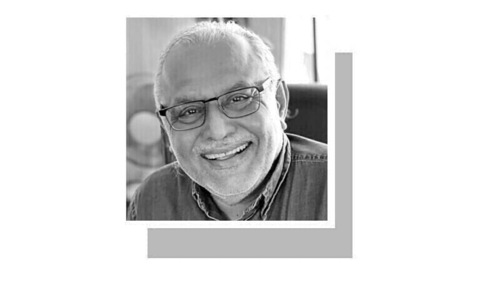AS luck would have it, I streamed A Real Pain the night before Kieran Culkin received an award for his supporting role in Jesse Eisenberg’s film about two cousins visiting Poland to honour their grandmother’s dying wish. Initially, I didn’t want to watch it because the film’s topic was about the Holocaust, and after watching a genocide live on our screens, I wasn’t in the mood for pretending events in Palestine don’t qualify as genocide.
However, curiosity got the better of me for two reasons: I like Culkin — he played a similar role to Succession’s Roman Roy, a potty-mouthed man-child with a nervous energy, albeit one who cares about others. Two, I wanted to see what yet another film about the Holocaust looks like. Even if it’s not a central character, how does the Holocaust or connection to Jewish trauma get portrayed in 2024?
A Real Pain was ok. It was sometimes pretentious, sometimes funny and sometimes sad. I feel Culkin’s win was Hollywood’s nod to the Holocaust, whose memory is kept alive at the cost of other genocides — Rwanda, Cambodia, Armenia, Bosnia and Herzegovina, and, of course, Palestine.
Ultimately, films about the Holocaust mean the Nazis remain the greatest villains.
I remember Kate Winslet’s excellent portrayal of Hanna, a tram conductor in West Germany in the 1950s, in The Reader. It’s told in flashbacks but is about an illicit relationship between Hanna and a teenage student, Michael; she asks him to read to her. One day she disappears, only to surface years later, in a military tribunal, where Michael, now a law student, learns Hanna was a camp guard in Auschwitz. He discovers she is illiterate; that as a guard she would choose prisoners to read to her. Hanna was complicit in those horrible crimes, yet there is a vulnerability to her. While the film was lauded by many, and Winslet received an Oscar for it, there were plenty of critics who slammed it for not showing the horrors of Auschwitz and for portraying Hanna as human.
The memory of the Holocaust is kept alive at the cost of other genocides.
In one of the film’s most powerful scenes, Hanna asks the tribunal judge: “What would you have done?” You will find a lot of anger in reviews at this particular line, because it added complexity, even humanity, to a time that was awful. It is so awful that any attempt to question it or deny it or compare it to events in Palestine today will get you cancelled, as the kids say. At the very least, you will be labelled antisemitic.
The Holocaust was significant because of its scale; the meticulous manner in which it was carried out that resulted in the death of six million people. It was also extensively documented, both visually and in the way the Nazis kept records. You can easily conjure up images of the concentration camps, the mass graves, skinny people with shaved heads and the Stars of David on their coats peering at the camera from cages. It is chilling.
But as someone who saw chilling war images in Vietnam’s war museums, I understand the power of memorialising the American war. I also know it is not done to reduce another’s suffering. It is rare to find someone use their suffering as an excuse to perpetuate wrongs on others.
We need new villains — and no, I don’t mean Hamas. Their villainisation is part of the problem. Too many Muslims and supporters of a free Palestine are pressured into condemning Hamas to show their humanity.
Why can’t the world see Palestinians’ humanity? At the risk of sounding like a conspiracy theorist, is it that neither the perpetrator nor victim is European? Genocides in Asia, the Middle East, Latin America or of indigenous people don’t make for good memorialising on screens. How many films or TV shows come to mind when you think about the horrors of partition, one of the largest and fastest migrations? Too few and even less if you think of those told from our perspective. It’s why I enjoyed the episode about partition on the TV show Ms Marvel, because it was written by Fatima Asghar and directed by Sharmeen Obaid-Chinoy, both Pakistanis.
So many countries have dark pasts, and struggle with the shadows of leaders like Stalin, Mao, Mussolini etc, but it is how they have confronted their pasts that matters most.
We should learn how the Holocaust has effectively remained in the global consciousness. It will be an uphill battle, but even the smallest of wins should serve as an encouragement. A small example is Bisan Owda’s Emmy win in September for her documentary, It’s Bisan from Gaza and I’m Still Alive — despite concerted campaigns to rescind her. At least 46,000 Palestinians have been killed since Oct 7, 2023. We must record the moral failing of this moment. And ensure their stories are not lost to future generations.
The writer is an instructor of journalism.
X: @LedeingLady
Published in Dawn, January 12th, 2025














































Dear visitor, the comments section is undergoing an overhaul and will return soon.